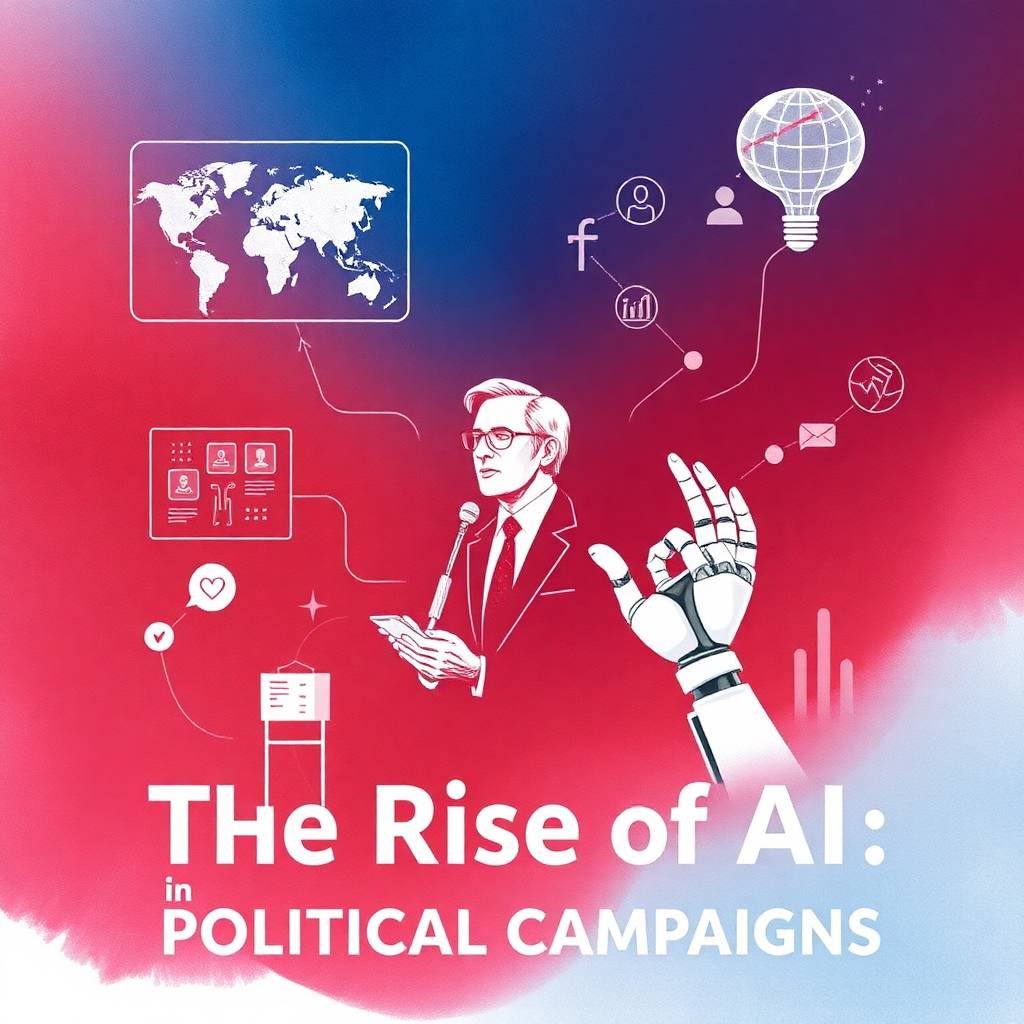Introduction
In today’s fast-paced political environment, Artificial Intelligence (AI) is emerging as a powerful tool that is reshaping how campaigns are conducted and managed. By leveraging AI, political strategists can process vast amounts of data to optimize strategies, enhance voter engagement, and streamline operations. As AI continues to evolve, it offers exciting opportunities to transform political campaigns, making them more efficient and effective.
Understanding AI in Political Campaigns
What is AI?
Artificial Intelligence (AI) refers to the use of advanced algorithms and machine learning techniques to perform tasks that typically require human intelligence. In political campaigns, AI processes extensive datasets to optimize strategies, engage voters more effectively, and streamline campaign operations.
Key AI Technologies in Political Campaigns
- Machine Learning: This technology analyzes voter data to identify patterns and predict voter behavior, helping campaigns tailor their messages to resonate with specific audiences.
- Natural Language Processing (NLP): NLP enables sentiment analysis, allowing campaigns to understand voter sentiments and opinions by analyzing social media and other communication channels.
- Predictive Analytics: Used to forecast election outcomes and voter turnout, predictive analytics assists in resource allocation and strategic planning, ensuring campaigns focus their efforts where it matters most.
Applications of AI in Political Campaigns
Voter Targeting and Segmentation
AI helps campaigns identify and target specific voter segments by analyzing demographic data, voting histories, and online behavior. This enables personalized messaging and more effective outreach, ensuring that campaign efforts resonate with the intended audience.
Sentiment Analysis and Social Media Monitoring
AI-powered tools track and analyze social media trends and public sentiment, providing insights into voter opinions and emerging issues. This allows campaigns to adjust their strategies and messaging in real-time, staying responsive to the electorate’s concerns.
Chatbots and Virtual Assistants
AI-driven chatbots engage with voters by answering questions, providing information, and encouraging voter registration. These tools enhance voter interaction and streamline communication efforts, making it easier for campaigns to maintain continuous engagement with constituents.
Fundraising and Resource Allocation
AI optimizes fundraising strategies by predicting donor behavior and identifying potential contributors. By analyzing past donation patterns and preferences, AI ensures efficient resource allocation, maximizing campaign contributions and ensuring financial sustainability.
Benefits of AI in Political Campaigns
Enhanced Efficiency
AI automates routine tasks and processes large volumes of data swiftly, allowing campaign teams to focus on strategic decision-making and creative efforts. This leads to more efficient operations and better allocation of resources.
Improved Voter Engagement
By personalizing communication and outreach, AI helps build stronger connections with voters. This tailored approach increases voter engagement and participation, fostering a more interactive and responsive campaign environment.
Data-Driven Decision Making
AI provides actionable insights through data analysis, enabling campaigns to make informed decisions and adapt quickly to changing dynamics. This ensures that strategies remain relevant and aligned with voter needs and preferences.
Conclusion
The rise of AI in political campaigns marks a new era in political strategy and voter engagement. As AI technology continues to evolve, its applications in campaigns will expand, offering new opportunities for innovation and efficiency. By addressing challenges such as data privacy and ethical implications, and ensuring transparent use, AI can significantly enhance the political process. This transformation promises to make campaigns more responsive to voter needs and concerns, ultimately fostering a more engaged and informed electorate.

